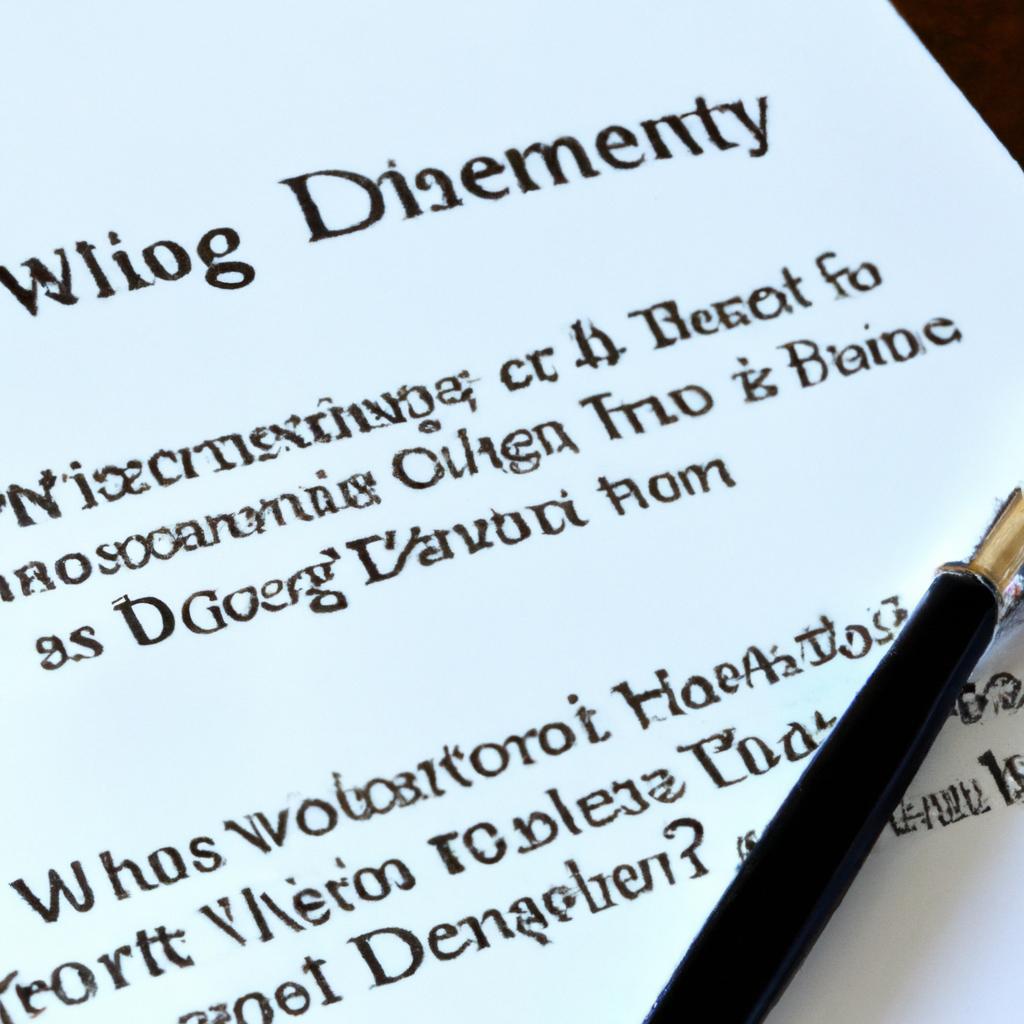In the complex realm of estate planning, one crucial document often overlooked is the “do not resuscitate” (DNR) living will. This legal instrument serves as a beacon of clarity for individuals seeking to assert their end-of-life wishes in the face of medical emergencies. At Morgan Legal Group in New York City, we understand the importance of proper estate planning, including the drafting and execution of DNR living wills. Let us guide you through the intricacies of this vital document to ensure your wishes are honored and your loved ones are empowered to make informed decisions in times of need.
Understanding DNR Living Will: A Comprehensive Overview
In a DNR living will, also known as a Do Not Resuscitate order, an individual specifies their wishes regarding life-sustaining treatments in the event they are unable to communicate their desires. This legal document provides clear instructions to healthcare providers regarding whether or not to perform CPR or other life-saving measures. Understanding the intricacies of a DNR living will is essential for anyone considering this important end-of-life decision.
- **Key points to consider when creating a DNR living will:**
- Consult with a qualified attorney specializing in estate planning to ensure your document is legally sound.
- Be specific and thorough in detailing your wishes regarding resuscitation measures.
- Communicate your preferences with your loved ones and healthcare providers to ensure your wishes are known and respected.
It is crucial to understand that a DNR living will only applies in certain medical situations, such as cardiac arrest. It does not dictate care for other conditions, such as infections or chronic illnesses. Additionally, a DNR living will can be revoked or updated at any time if the individual’s preferences change. By carefully considering the implications of a DNR living will and consulting with legal professionals, individuals can ensure that their end-of-life decisions are clearly understood and respected.

Key Considerations When Drafting a DNR Living Will
When drafting a DNR living will, there are several key considerations that must be taken into account to ensure that your wishes are clearly communicated and legally binding. Here are some important factors to keep in mind:
- Specificity: Be as specific as possible when outlining your wishes regarding medical interventions and end-of-life care.
- Consultation: It is advisable to consult with a lawyer specializing in estate planning to ensure that your DNR living will complies with state laws and regulations.
- Healthcare Proxy: Designate a trusted individual to act as your healthcare proxy in case you are unable to make medical decisions for yourself.
- Review: Regularly review and update your DNR living will to reflect any changes in your medical condition or personal preferences.
| State Laws | Impact on DNR Living Will |
|---|---|
| New York | Requires two witnesses to validate a DNR living will. |
| California | Allows the use of a pre-printed DNR form issued by the Department of Public Health. |

How to Ensure Your DNR Living Will is Legally Valid
To ensure that your DNR (Do Not Resuscitate) Living Will is legally valid, it is crucial to follow certain steps and considerations. Here are some key points to keep in mind:
- Consult with an attorney: It is highly recommended to seek legal advice from an experienced attorney who specializes in estate planning and healthcare directives. They can assist you in correctly drafting and executing your DNR Living Will.
- Follow state laws: Each state has its own laws and requirements regarding Living Wills. Make sure to comply with the specific regulations in your state to ensure the validity of your document.

Consulting an Experienced Attorney for DNR Living Will Guidance
When it comes to making important decisions regarding your healthcare, it is crucial to consult with an experienced attorney for guidance on creating a DNR living will. A Do-Not-Resuscitate (DNR) living will is a legal document that outlines your wishes for medical treatment in the event that you are unable to communicate them yourself. Consulting with a knowledgeable attorney can help ensure that your DNR living will accurately reflects your preferences and is legally binding.
At Morgan Legal Group, our team of skilled attorneys has years of experience assisting clients with estate planning and healthcare directives, including DNR living wills. We understand the complexities of these documents and can provide you with personalized guidance to help you make informed decisions about your healthcare wishes. By consulting with us, you can gain peace of mind knowing that your DNR living will is in compliance with state laws and accurately reflects your desires for end-of-life care.
Q&A
Q: What is a dnr living will?
A: A dnr living will, also known as a do not resuscitate living will, is a legal document that allows individuals to specify their wishes regarding medical treatment in the event that their heart stops or they stop breathing.
Q: Why would someone choose to have a dnr living will?
A: Some individuals may choose to have a dnr living will in order to avoid being kept alive through artificial means or to indicate that they do not want to be resuscitated if they are terminally ill or in a vegetative state.
Q: How is a dnr living will different from a traditional living will?
A: While a traditional living will allows individuals to specify their wishes regarding life-sustaining treatment in general, a dnr living will specifically addresses the issue of resuscitation.
Q: Who can create a dnr living will?
A: Any competent adult can create a dnr living will, but it is recommended that individuals discuss their wishes with their healthcare provider and loved ones before drafting the document.
Q: Are dnr living wills legally binding?
A: In most cases, dnr living wills are legally binding as long as they comply with state laws and are properly executed. It is important to keep the document up-to-date and make sure that healthcare providers are aware of its existence.
Q: Can a dnr living will be revoked or amended?
A: Yes, a dnr living will can be revoked or amended at any time by the individual who created it. It is important to communicate any changes to healthcare providers and loved ones to ensure that wishes are respected.
Final Thoughts
As you ponder the importance of having a DNR living will in place, remember that this document is not just about making difficult decisions, but about expressing your wishes and values in a time of need. It serves as a beacon of clarity for your loved ones and healthcare providers, ensuring that your end-of-life care aligns with your desires. So take control of your future and prepare for the unexpected by creating a DNR living will today. Your peace of mind and legacy of autonomy await.

